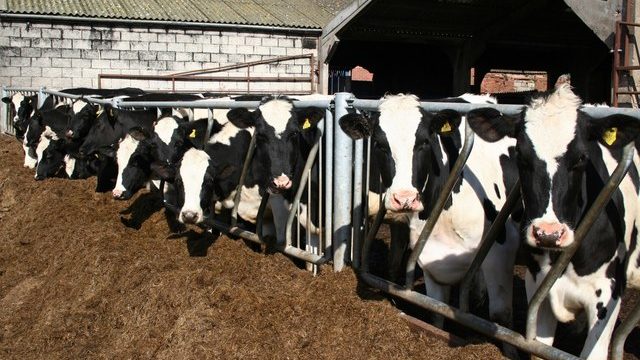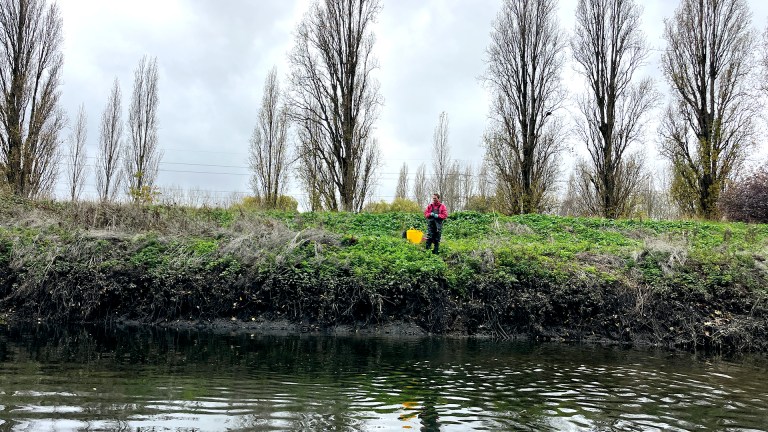Many vegans also avoid animal-derived products in the other things they buy, such as opting for pleather instead of leather when purchasing clothes or shoes.
Not all vegans are in agreement about what exactly constitutes an animal product. Some vegans eat honey, for instance, while others avoid it.
Veganism was once considered a niche diet but it very quickly became mainstream as more and more people became vegan for health reasons, to prevent the exploitation of animals, or to lower their carbon footprint.
YouGov estimates around two per cent of the UK population are vegan.
How did Veganuary start?
Veganuary was started in 2014 by a UK non-profit organisation of the same name as a way to encourage more people to try a vegan diet for at least one month.
The organisation exists to promote and support veganism and to break down any misconceptions of veganism.
Over 3,000 people signed up to go vegan in January 2014, and the numbers have since skyrocketed. The Vegan Society says that over 500,000 people from 209 countries took part in the movement in 2021.
Advertising helps fund Big Issue’s mission to end poverty
The movement was supported by vegan comedians Romes Ranganathan, Sara Pascoe, Carl Donnelly, Michael Legge, and Andrew O’Neill, building momentum for Veganuary.
What does Veganuary involve?
The basic idea of Veganuary is to avoid animal products for an entire month, but people interpret this instruction differently depending on what’s realistic for them and their lifestyle.
Some people just avoid animal products in their diets, while others attempt to avoid animal products or animal cruelty in the cosmetics they use and the clothes and accessories they buy.
Anyone can do Veganuary – but it may help to be aware of your nutritional needs and plan your meals accordingly.
There are now many vegan and plant-based products available in supermarkets, restaurants, pubs, and cafes as vegan diets have become more popular. Meat alternatives such as vegan bacon, vegan burgers, and even vegan fish now exist so you won’t be relegated to eating broccoli and carrots for the entire month.
Some people like certain brands over others, such as Quorn or Vivera, and it may take you some time to work out which products are right for you.
Advertising helps fund Big Issue’s mission to end poverty
What are the reasons people go vegan?
There are lots of different reasons why a person might go vegan, including ethical concerns over farming practises to health issues associated with eating meat and dairy.
One growing concern around eating meat and dairy is the climate impact of these foods, with many now opting for veganism as a way to combat climate change.
Can going vegan help fix climate change?
One growing concern around eating meat and dairy is the climate impact of these foods, with many now opting for veganism as a way to combat climate change.
Of course, one person changing their diet won’t be enough to fix the global issue of climate change, but there is evidence to suggest that veganism can help the environment.
Researchers from the University of Oxford previously found that following a plant-based diet is one of the most effective things an individual can do to reduce their impact on the planet – with a carbon footprint reduction of over 70 per cent – and researchers from Loma Linda University in California said that vegans have the smallest carbon footprint overall.
Meat and dairy products can be damaging to the environment and climate in several ways, though some products – such as beef – are more damaging than others.
Advertising helps fund Big Issue’s mission to end poverty
Cows produce methane, a greenhouse gas even more dangerous than carbon dioxide. Because millions of cattle are bred to satisfy global demand for beef, the animal agriculture industry is the single largest source of methane emissions across the world.
Globally, meat and dairy accounts for around 14.5 per cent of global greenhouse gas emissions, according to the UN’s Food and Agricultural Organization (FAO), which says raising animals for food is “one of the top two or three most significant contributors to the most serious environmental problems, at every scale from local to global.”
Forests all over the world are felled to make way for cattle and soya to feed cattle – destroying vital carbon-absorbing trees.
If everybody in the world went vegan, the world’s food-related emissions would drop by 70 per cent by 2050.
Is veganism a healthy diet?
According to the NHS, it’s possible to get “most of the nutrients you need” by following a vegan diet so long as you plan well and make sure you’re consuming enough of each food group.
To follow a vegan diet healthily, the NHS recommends:
Advertising helps fund Big Issue’s mission to end poverty
- Eating at least 5 portions of a variety of fruit and vegetables every day
- Basing meals on potatoes, bread, rice, pasta or other starchy carbohydrates (choose wholegrain where possible)
- Having some dairy alternatives, such as soya drinks and yoghurts (choose lower-fat and lower-sugar options)
- Eating some beans, pulses and other proteins
- Choosing unsaturated oils and spreads, and eat in small amounts
- Drinking plenty of fluids (the government recommends 6 to 8 cups or glasses a day)
Veganism can be a healthy and balanced diet, as long as you are prepared for what it involves. If you do not plan your diet properly, you could miss out on essential nutrients, like calcium, iron, vitamin B12, iodine, and selenium. These are necessary for the body, but with good planning, there’s no reason why a vegan diet can’t sustain that.
Look out for the nutritional content of the products you eat and consider taking supplements while you are eating vegan.
If you are pregnant or breastfeeding, you will need to ensure you are eating enough vitamins and minerals for your child to develop healthily.
Where can I find vegan recipes and vegan products?
One way you can access tips and recipe ideas for Veganuary is to sign up to the official newsletter, where you’ll be sent hints and recipes on a regular basis.
Luckily, the range of recipes and vegan food products now available is vastly expanded when compared to a few years ago, so most major supermarkets stock vegan-friendly products like plant-based milks, vegan burgers and dairy-free spreads.
The app “Is it Vegan” can be downloaded onto your smartphone and used to check whether a product is or isn’t vegan in case the label isn’t clear.
Advertising helps fund Big Issue’s mission to end poverty
Vegan recipes can be found everywhere online, from BBC Good Food to specialist vegan recipe sites, while dozens of cookbooks can be bought in-person or online which focus exclusively on plant-based recipes.
Social media sites like Instagram can also be a great place for inspiration and tips. Accounts like “Accidentally Vegan UK” for instance, document products which you might not have realised were vegan-friendly.
What new products are on offer for Veganuary?
During Veganuary, many retailers and restaurants introduce new products specifically aimed at vegans, with more on offer this year than ever before.
That means there’s no need to give up the treats and food you love – with plenty of alternatives on offer to compensate.
Previously, Greggs released their famous vegan sausage roll in 2019, and KFC and Burger King both introduced more vegan products for the start of 2022.
Some of the new products introduced for Veganuary 2022 include:
Advertising helps fund Big Issue’s mission to end poverty
- Terry’s announced the release of a fully vegan Chocolate Orange Bar so you won’t have to give that up during Veganuary.
- Lindt launched its first vegan chocolate bars in 2022 and will be adding a new one to the range in January – vegan caramel sea salt.
- While Christmas will be over by the time Veganuary starts, if you ever fancy turkey for dinner, Waitrose is now selling a vegan turkey joint, made from wheat and pea protein.
- Burger King has hinted at a vegan bacon cheeseburger in its UK restaurants starting from January 4.
- Moving Mountains is launching two vegan chicken products in Sainsbury’s and Ocado, with £1 per purchase donated to the British Hen Welfare Trust.
- Fans of Crosstown Doughnuts will be happy to hear that three new limited edition vegan doughnuts are being added to the menu for Veganuary 2023, including rhubarb and jasmine, strawberry cheesecake, and blood orange.
- Oumph! Is launching a range of chilled vegan products, including Korean BBQ and tandoori chunks, which can be added to wraps, curries, bao buns, and noodle dishes.





